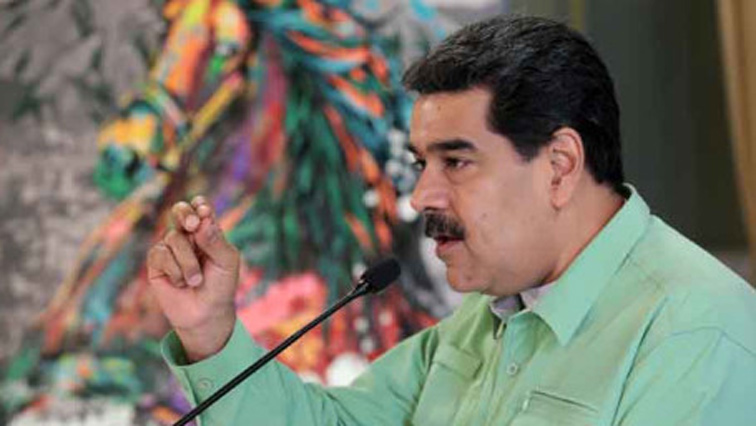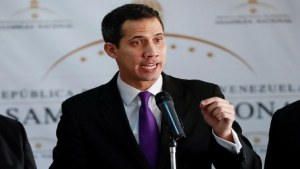Fifty-four countries have thus far heeded a call – or succumbed to the threat of the US – (depending on which side one is) to cease the recognition of the democratically-elected president of Venezuela, Nicolas Maduro.
And, for the three-quarters of the world’s countries who insist on recognizing Maduro, the threat of economic sanctions is looming large.
Elliot Abrams, the US special envoy to Venezuela, let loose the Trump administration’s threat when he recently revealed that secondary sanctions against countries who continue to recognize Maduro as president were a great possibility.
His statement echoed earlier pronouncement by the hawkish 27th national security adviser of the US, John Bolton, who had openly dangled the threat of further sanctions against the strife-torn Latin American country.
Abrams indicated that a decision to sanction third party countries remained on the horizon. In short, the US is using at the core of its foreign policy threats rather than diplomacy. This is reprehensible. There is a good reason why the UN was formed after World War2. Among a raft of objectives the global body was meant to correct the flaws of its predecessor, the League of Nations, which was established following the Peace Treaty of Vienna at the end of the First World War in 1918.
The good work done through the years is being undone by the US’s unilateralism, which pays scant attention to peaceful coexistence of nations. Former US President George W Bush, he of the infamous invasion of Iraq in search of the weapons of mass destruction that never were, summed up his country’s problematic foreign policy when he declared: “If you are not with us you are against us.” Now, we see this policy rearing its ugly head again under President Trump. In his drive to effect regime change in the Bolivian republic of Venezuela, the Trump administration is wagging its finger at its close neighbour but old foe Cuba, a country Trump and his Republic party was never pleased that the Obama administration had earlier lifted sanctions against and re-established diplomatic relations.
For the uninitiated, ties between Cuba and Venezuela are tight. They’ve been like that through very difficult times when Havana was economically isolated by Washington for decades. When the late Venezuelan president Hugo Chavez took ill around 2011, he was warmly received and housed by his hero and counterpart in Cuba, the later Fidel Castro. From 1998 till 2013 when Venezuela was under the socialist Chavis, the country’s economy flourished and its international standing grew. Bilateral relations between the country and the US were kept at a bare minimum by Chaviz and his deputy, Maduro, who both regarded the US foreign police as imperialist.
Colin Cavell, Associate professor of political science at the Bluefield State College in the US, has an interesting analysis of the Trump administration’s strategy on Venezuela.
The US government, he argues, is “internationalizing the Venezuelan conflict on a very dangerous basis – threatening other countries who deal with Venezuela, saying if you do not support our sanctions we are going to impose sanctions on you.”
He adds: “Three quarters of the world’s countries are siding with the elected government, the democratic government of Venezuela and that includes the largest countries in the world, China and Russia.”
This is a factor that the self-declared interim “president” of Venezuela Juan Guaib needs to take seriously into consideration. He cannot impose himself on the people of Venezuela. Neither can his handlers in Washington impose him on the people. That is a recipe for disaster. Since his manufactured chaos hit Venezuela in January, he has steadfastly refused invitation from President Maduro to sit around the table and iron out their differences. At the recent UN debate on Venezuela both China and Russia vetoed a draft resolution on Venezuela which sought to expedite Maduro’s exit from office by undemocratic means.
If Guaido is patriotic enough, and he has the interest of his once stable and flourishing country at heart, he must immediately recognize the will of the Venezuelan people who elected President Maduro into office. Robbing democratic processes is nothing less than a coup. I am pleased that through our permanent ambassador to the UN, Jerry Matjila, South Africa continues to stand with the people of Venezuela against power-hungry Guaido who may not be aware at this stage that pandering to the whims of Washington could destroy the very country he purports to love, and want to lead by hook or by crook.



